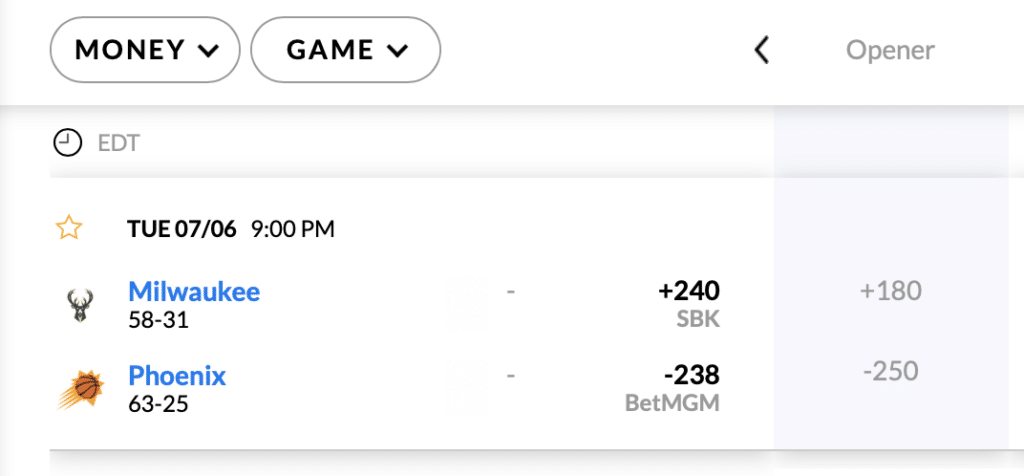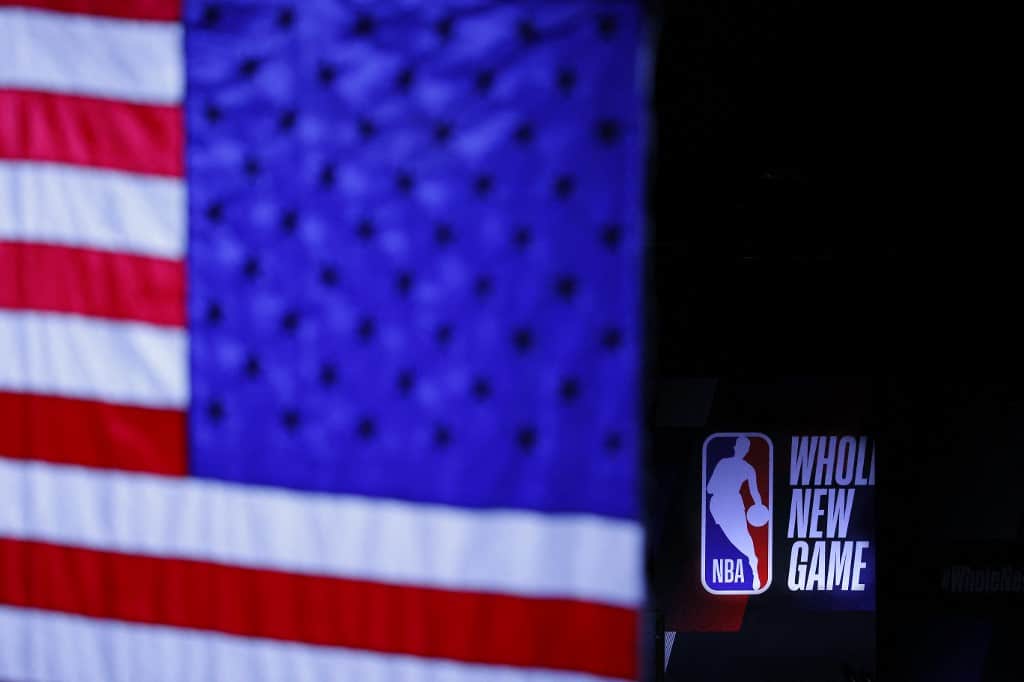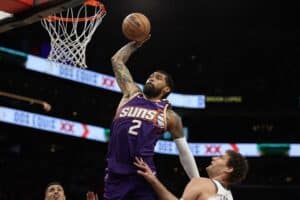Here is a breakdown of how to bet the NBA Finals every year.
Spread, Total, Moneyline
For every NBA Finals game, you can bet on the spread, total, or moneyline. Betting on the spread means betting on the favorite to win by a certain amount of points or betting on the underdog to do no worse than lose by a certain amount of points.
It’s quite possible for different sportsbooks to vary somewhat in terms of the numbers that they are offering.
Here you can see an overview of what different sportsbooks have available. You can see the spread, total, and moneyline for the game or for a given half or quarter.

If you want to bet the underdog, for example, you may see “Milwaukee +6 -110” listed at one sportsbook and “Milwaukee +6 -115” listed at another sportsbook.
While the difference may be slight, it’s still meaningful. If you bet on Milwaukee +6 at -115, then you are investing five dollars more (per 100 dollars risked) on the Bucks to lose by five points or fewer (or to win).
It’s important to shop around because, in getting a better price, you create a larger margin of error for yourself, such that you can lose more bets and still make more money.
The same concepts apply when you bet on the total, on whether both teams will combine for more or fewer points than the posted number of points, or on the moneyline, on which team will win.
The Numbers Will Change From Game to Game
The betting odds will change from game to game. One reason why they will change is home court. For the spread, sportsbooks typically value a team’s home court at three points relative to neutral court.
So when teams switch locations, the spread will shift six points in the new home team’s advantage if home court advantage is the only factor. The moneyline odds will also change accordingly.
Finding an Edge
But home court is not the only factor. So don’t simply expect a six-point shift in the betting odds. Also don’t expect the spread, total, or moneyline odds to stay the same from game-to-game even when the series persists in the same team’s venue.
I recommend tracking what the opening odds are for each game. I value the opening odds more because these reflect the sportsbooks’ input, whereas the closing odds generally reflect the movement in the odds generated by action from bettors.

I am making this recommendation because my point is that it is worth discerning why sportsbooks publish new odds for every game. This act of discerning is valuable because it will help you locate betting value: if you think that the odds have changed for a bad reason, then you will perceive a strong opportunity to place a winning wager.
One common reason why the odds will shift is that oddsmakers will account for the betting public’s susceptibility to recency bias. Oddsmakers know that the betting public attaches extra importance to what it has most recently seen.
If a team gets blown out, then that team will likely be dogged by more points or favored by fewer points in the next game than it would have been otherwise. This is often a bad reason for the odds to shift. To see why, simply look at any series in NBA history and see how severely the results vary from game to game.
Just because a team wins by 30 points in Game 1 does not mean that it will win by as many points or that it will win at all in Game 2. To be clear, I’m not at all implying that you should fade a team for winning in a blowout. What I’m saying is that you need to understand why a team wins (or loses) by as many points as it does.
Things always vary from game to game. Maybe, for example, the winning team enjoyed an anomalously strong shooting performance in which they made a ton of contested three-pointers.
If you still have confidence in a defense’s ability to contest the opponent’s three-point shot attempts at a high rate, then you will likely perceive value in that team because it will be dogged by more points or favored by fewer points despite having the same ability to succeed.
Similarly, you may perceive value in the “under” if the total is higher and yet you expect at least that team to continue to defend as well. Maybe, though, a team figured the other team out by making tactical adjustments. So my best advice is for you to pay attention to the games and keep track of the odds.









